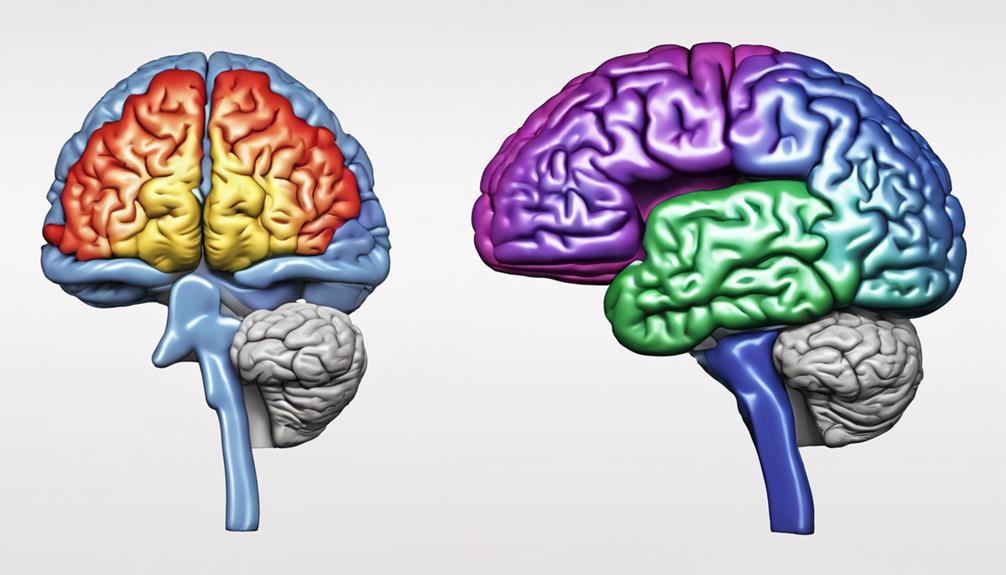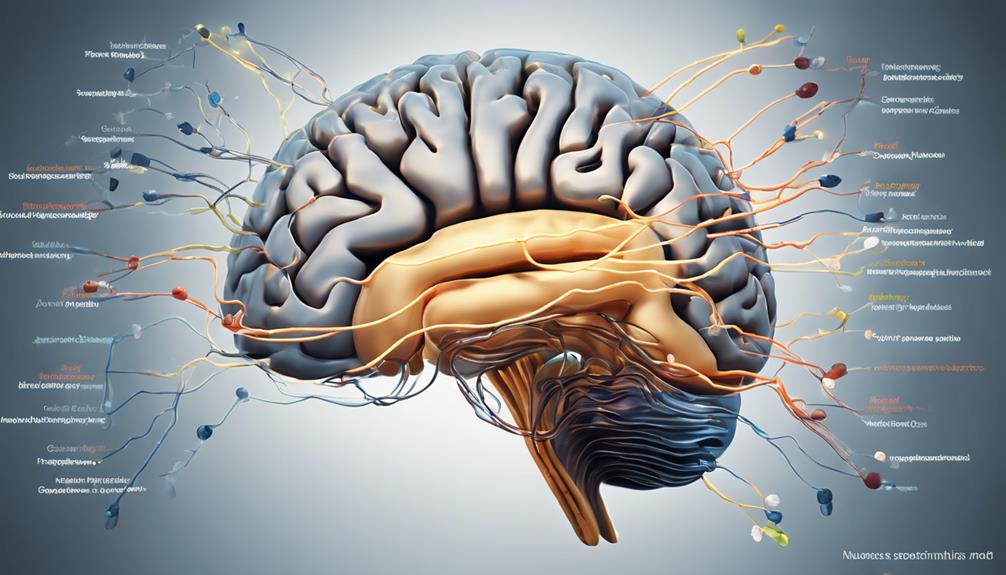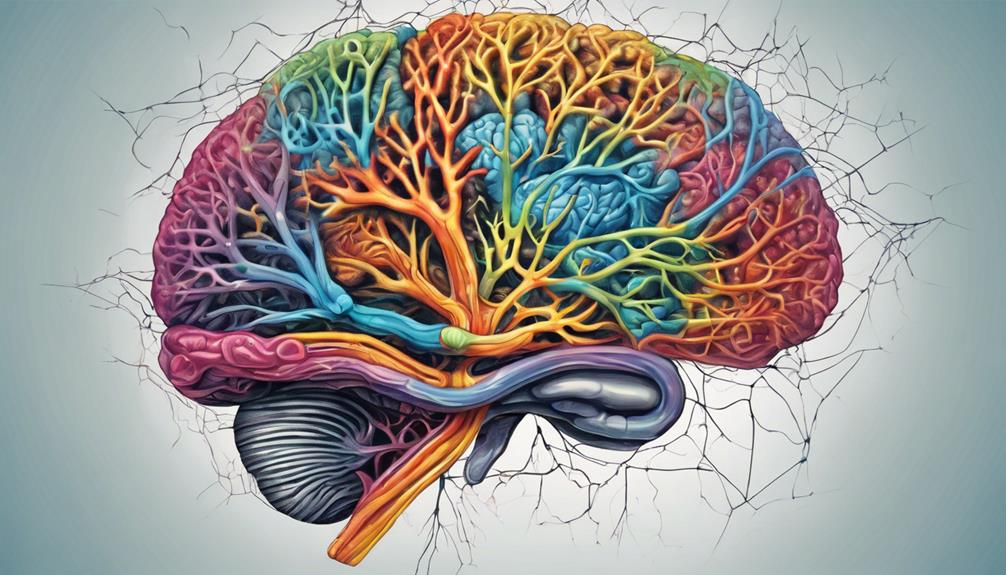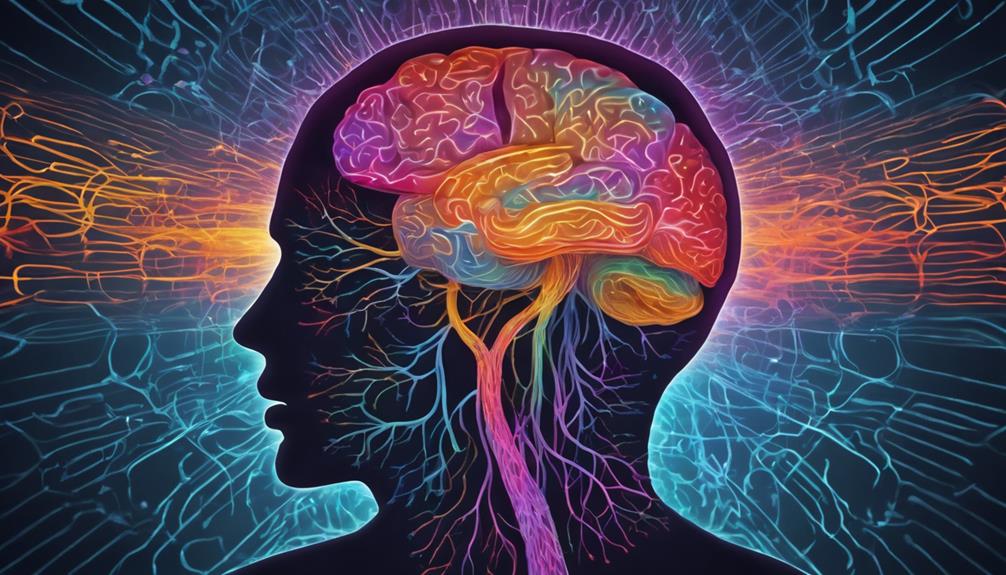Neurological studies demonstrate the involvement of prefrontal cortex, anterior cingulate cortex, and insula in hypnosis, focusing on attention, emotional response modulation, and bodily sensation alteration. Hypnotic learning relies on neural plasticity and changes in connectivity within attention, perception, and self-awareness regions. Neurotransmitter activity, including dopamine, serotonin, and GABA, is influenced. Brainwave alterations, like increased alpha and theta waves, correlate with relaxation and suggestibility changes. Crucially, neuroplasticity connects hypnosis with cognitive processes, highlighting the importance of individual differences in hypnotic susceptibility. Understanding these insights provides a comprehensive view of the neurobiological basis of hypnosis.
Brain Regions Involved in Hypnosis

Several key brain regions have been identified to play a crucial role in the phenomenon of hypnosis. Among these regions, the prefrontal cortex, anterior cingulate cortex, and insula are notable for their involvement in cognitive processes during hypnotic states. The prefrontal cortex, known for its role in decision-making and self-awareness, is thought to mediate the attentional focus and suggestibility observed in hypnosis.
Concurrently, the anterior cingulate cortex, responsible for emotional regulation and error detection, may modulate the emotional responses and depth of hypnosis experienced by individuals. Additionally, the insula, associated with bodily awareness and self-perception, likely contributes to the altered bodily sensations and experiences reported during hypnotic trance.
Functional connectivity studies have revealed intricate networks between these brain regions during hypnosis. Enhanced connectivity between the prefrontal cortex and insula, coupled with reduced connectivity between the prefrontal cortex and default mode network, has been observed. These connectivity patterns suggest a shift towards focused attention and reduced self-referential processing, aligning with the cognitive alterations characteristic of hypnotic states.
Neural Pathways Underlying Hypnotic Response
The neural pathways underlying the hypnotic response offer valuable insights into the intricate mechanisms that govern the altered states of consciousness induced by hypnosis. Neural plasticity, the brain's ability to reorganize itself by forming new neural connections, plays a crucial role in hypnotic learning.
Studies have shown that repeated exposure to hypnotic suggestions can lead to changes in neural connectivity, strengthening pathways associated with responsiveness to hypnosis. This phenomenon is particularly evident in individuals with high hypnotic suggestibility, where specific brain regions involved in attention, perception, and self-awareness exhibit enhanced connectivity during hypnotic states.
Furthermore, the relationship between hypnotic suggestibility and brain connectivity suggests that individuals who are more easily hypnotized may have a predisposition towards certain neural network configurations that facilitate hypnotic responsiveness. Understanding these neural pathways not only sheds light on the physiological basis of hypnosis but also provides insights into how individual differences in brain function may influence one's susceptibility to hypnotic suggestions.
Impact of Hypnosis on Neurotransmitters

Research on the impact of hypnosis on neurotransmitters has revealed significant insights into the modulation of brain chemistry during hypnotic states. Hypnosis has been shown to influence neurotransmitter activity, leading to alterations in hormonal regulation and cognitive function.
Studies indicate that hypnosis can impact neurotransmitters such as dopamine, serotonin, and gamma-aminobutyric acid (GABA). These neurotransmitters play crucial roles in regulating mood, cognition, and various physiological functions.
Hypnosis has been found to affect hormonal regulation by influencing the release of hormones such as cortisol and oxytocin. Cortisol levels, which are associated with stress, have been shown to decrease during hypnotic states, suggesting a potential stress-reducing effect of hypnosis. On the other hand, oxytocin, often referred to as the 'love hormone,' may increase during hypnosis, promoting feelings of trust and connection.
Furthermore, hypnosis can impact cognitive function by modulating neurotransmitter activity in brain regions involved in memory, attention, and perception. The precise mechanisms through which hypnosis influences neurotransmitters and subsequently affects hormonal regulation and cognitive function warrant further investigation to fully understand the neurobiological basis of hypnosis.
Changes in Brainwaves During Hypnotic State
Understanding the neurobiological aspects of hypnosis extends to investigating the changes in brainwaves that occur during a hypnotic state. Research has shown that during hypnosis, there are observable alterations in the patterns of brainwave activity.
One significant change is the increase in alpha waves, which are associated with a state of relaxation. This increase in alpha waves suggests that individuals in a hypnotic state experience a heightened sense of calmness and reduced peripheral awareness.
Furthermore, theta waves have also been found to play a crucial role during hypnosis. Theta waves are linked to deep relaxation and increased suggestibility. This heightened suggestibility observed in individuals experiencing theta waves during hypnosis indicates a state where they are more receptive to accepting and acting upon suggestions provided by the hypnotist.
The interplay between alpha waves inducing relaxation and theta waves enhancing suggestibility provides insight into the neurobiological mechanisms underlying the hypnotic state. Further research into these brainwave changes could contribute to a deeper understanding of the cognitive and neural processes involved in hypnosis.
Neuroplasticity and Hypnosis Connection

Neuroplasticity plays a significant role in elucidating the intricate connection between hypnosis and the brain's adaptive capacity. The brain's ability to reorganize itself by forming new neural connections is crucial in understanding how hypnosis can influence cognitive processes.
Neuroplasticity mechanisms underlie the changes in neural pathways that occur during hypnotic states, impacting various functions such as perception, memory, and behavior.
Individual differences in hypnotic susceptibility have been linked to variations in neuroplasticity, suggesting that individuals with higher hypnotic susceptibility may exhibit greater neural plasticity in response to hypnotic induction.
Cognitive flexibility, a key component of neuroplasticity, is essential in enabling individuals to enter hypnotic states more easily and respond to suggestions effectively.
Furthermore, studies have shown that practicing hypnosis can enhance cognitive flexibility, potentially strengthening neuroplasticity mechanisms in the brain over time.
Frequently Asked Questions
Can Hypnosis Help With Chronic Pain Management?
Hypnosis can offer relief in chronic pain management by influencing pain perception through the mind-body connection. Research suggests that hypnosis can modulate neural pathways involved in pain processing, offering a complementary approach to traditional pain management strategies.
Is Hypnosis Effective for Treating Anxiety Disorders?
Hypnosis research shows promising potential for anxiety treatment. Studies suggest hypnotherapy can reduce anxiety symptoms by influencing neural pathways and cognitive processes. Further exploration into the efficacy and mechanisms of hypnosis in anxiety management is warranted.
Does Hypnosis Have Long-Term Effects on the Brain?
Research suggests that hypnosis may induce long-term effects on the brain by influencing brain plasticity and promoting cognitive changes. Continued studies are needed to better understand the mechanisms underlying these outcomes.
Can Hypnosis Improve Memory and Cognitive Function?
Hypnosis shows promise in enhancing memory and cognitive function by potentially improving learning retention and mental acuity. Further research is needed to fully understand the mechanisms behind these effects and to optimize their practical applications.
How Does Hypnosis Influence Emotional Regulation in the Brain?
Hypnosis exerts an impact on emotional regulation within the brain by modulating brain activity in regions associated with emotional response. Through altered neural pathways, hypnosis can influence emotional processing, potentially leading to improved emotional regulation.
Conclusion
In conclusion, neurological studies have provided valuable insights into the mechanisms underlying hypnosis. The involvement of specific brain regions, neural pathways, neurotransmitters, brainwave changes, and neuroplasticity all contribute to our understanding of this altered state of consciousness.
Further research in this field may help elucidate the potential therapeutic applications of hypnosis in various neurological conditions.


